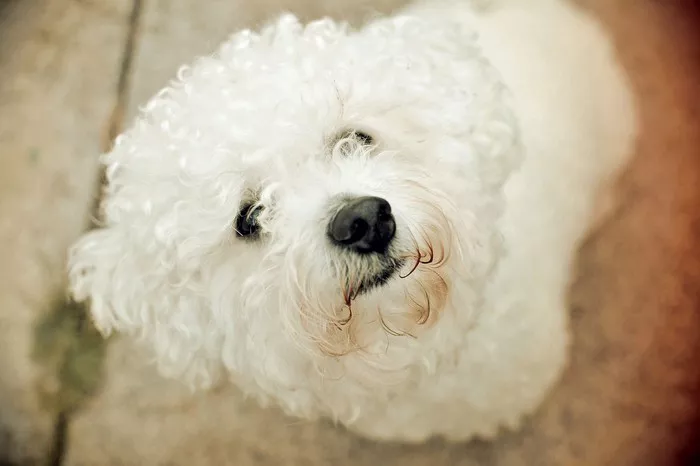Bichon Frises are a popular breed of small, fluffy dogs that are known for their friendly and affectionate personalities. They are often considered a great family pet due to their adaptability to different living environments and their playful nature. However, like all dog breeds, Bichon Frises have both pros and cons that potential owners should consider before bringing one into their home. In this article, we will explore the pros and cons of owning a Bichon Frise.
Pros of Owning a Bichon Frise:
Friendly and Affectionate Personality:
Bichon Frises are known for their friendly and affectionate personalities. They are great with children and make excellent family pets. They thrive on human interaction and love to be around people.
Playful Nature:
Bichon Frises are very playful and enjoy playing games and engaging in other activities. They are great for families with children or active individuals who enjoy outdoor activities.
Adaptability:
Bichon Frises are adaptable dogs that can live in a variety of environments, including apartments and small homes. They do not require a lot of space and are generally low-maintenance.
Hypoallergenic:
Bichon Frises are considered a hypoallergenic breed, which means they produce less dander and are less likely to cause allergic reactions in people with allergies.
Long Lifespan:
Bichon Frises have a long lifespan of 12-15 years, which means they can provide many years of companionship and love to their owners.
Cons of Owning a Bichon Frise:
High Maintenance:
Bichon Frises have a thick, fluffy coat that requires regular grooming to prevent matting and tangling. They also require regular bathing and trimming to maintain their appearance.
Separation Anxiety:
Bichon Frises are prone to separation anxiety and may become destructive or anxious when left alone for long periods of time. They require a lot of attention and may not be suitable for owners who work long hours or travel frequently.
Health Issues:
Like all dog breeds, Bichon Frises are prone to certain health issues, including dental problems, ear infections, and allergies. They may also be prone to certain genetic conditions, such as hip dysplasia and patellar luxation.
Stubbornness:
Bichon Frises can be stubborn at times, which can make training a bit of a challenge. They require consistent and patient training to learn new behaviors and commands.
High Energy:
Bichon Frises are high-energy dogs that require daily exercise and mental stimulation. They may not be suitable for owners who prefer a more laid-back lifestyle or who do not have the time or energy to provide them with the exercise they need.
Conclusion:
Owning a Bichon Frise can be a rewarding experience for the right owner. They are friendly, affectionate, and playful dogs that make great family pets. However, they also have their drawbacks, including their high maintenance grooming needs, separation anxiety, and potential health issues. Potential owners should carefully consider these pros and cons before bringing a Bichon Frise into their home to ensure they are prepared to provide the care and attention these dogs require. With proper care and attention, a Bichon Frise can be a loving and loyal companion for many years to come.
FAQs
What are the cons of owning a Bichon Frise?
While Bichon Frise dogs are beloved for their cheerful demeanor and affectionate nature, there are some potential drawbacks to consider. Bichons can be prone to separation anxiety if left alone for long periods, which may lead to excessive barking or destructive behaviors. Additionally, their fluffy white coats require regular grooming to prevent matting and maintain their appearance. Some Bichons may also be prone to health issues such as allergies, dental problems, or joint issues, requiring ongoing veterinary care.
What are the behavior problems with Bichon Frise?
Bichon Frise dogs are generally well-behaved and friendly, but like any breed, they may exhibit certain behavior problems if not properly trained and socialized. Common behavior issues in Bichons include separation anxiety, excessive barking, and housebreaking challenges. However, with consistent training, positive reinforcement, and early socialization, these issues can often be managed effectively.
Do bichons bark a lot?
Bichon Frise dogs are known for their tendency to bark, especially when they are excited, bored, or seeking attention. While barking behavior can vary from dog to dog, Bichons may bark more than some other breeds. Proper training and socialization can help manage excessive barking in Bichons and teach them appropriate ways to communicate.
Is a male or female Bichon Frise better?
Whether a male or female Bichon Frise is better depends on individual preferences and circumstances. Both genders of Bichons typically exhibit similar temperament and behavior traits. Some owners may have a preference for one gender over the other based on factors such as size, personality, or compatibility with other pets. Ultimately, the best choice is to select a Bichon Frise based on temperament, health, and compatibility with your lifestyle and household.


